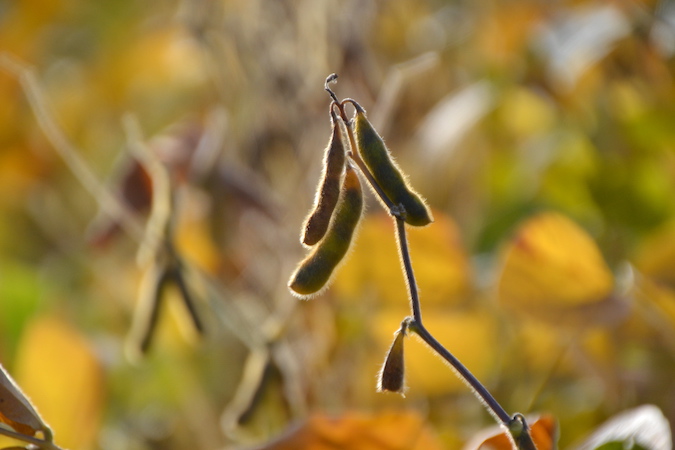NY awarded $60 million for farms and forests to advance ‘Climate Smart’ projects
Press Release, Gov. Kathy Hochul’s Office
Governor Kathy Hochul on Tuesday announced the New York State initiative, NYS Connects: Climate Smart Farms and Forests Project, was awarded a $60 million grant under the first round of the U.S. Department of Agriculture Partnerships for Climate-Smart Commodities funding opportunity.
Led by the State Department of Environmental Conservation and Department of Agriculture and Markets, the project is one of 70 selected nationally and will help agriculture producers and forest landowners implement climate smart agriculture and forestry practices, and build connections between landowners and companies with a growing demand for commodities produced using climate smart strategies.
“Sustainable agriculture is critical for combatting the effects of climate change, and this significant funding commitment will greatly aid New York’s farm and forest owners, allowing us to partner together as a nation to reduce greenhouse gases,” Hochul said. “Thanks to this funding announced under President Biden and his Administration, we take another major step towards improving our environment for the next generation. The public and private partnerships leading the Climate Smart Farms and Forests Project will provide new and innovative measures that promote forestry and farming that will help achieve our ambitious climate goals, protect the environment, preserve farmland, and meet a global demand for products grown with greener technology.”
A climate smart commodity is an agricultural commodity that is produced using agricultural (farming, ranching or forestry) practices that reduce greenhouse gas emissions or sequester carbon. The NYS Connects: Climate Smart Farms and Forests Project will immediately fund landowners working to implement multiple climate smart agriculture and forestry (CSAF) practices by building on current State programs.
The project will identify and mitigate social and behavioral barriers to CSAF practice adoption, particularly among underserved and minority populations. A combination of new and well-developed tools will be used for measurement, quantification, monitoring, reporting, and verification. This data will also be beneficial for building continuous improvement processes to refine practices and programs, reduce costs, and mitigate greenhouse gas emission impacts.
In the first round of funding, the U.S. Department of Agriculture (USDA) is investing up to $2.8 billion in 70 selected projects nationally from more than 450 submitted project proposals. The initial projects will expand markets for climate-smart commodities, leverage the greenhouse gas benefits of climate-smart commodity production, and provide direct, meaningful benefits to production agriculture, including for small and underserved producers. USDA will work with the applicants for the 70 identified projects to finalize the scope and funding levels in the coming months.
Department of Environmental Conservation Commissioner and Climate Action Council Co-Chair Basil Seggos said, “In New York State, private forests are removing climate-altering carbon dioxide from the atmosphere at a rate equal to the emissions from two million gasoline-powered vehicles, highlighting the importance of partnering with landowners to sustain our forests and fight climate change. With strong partners in Washington, D.C., DEC will use these federal funds to implement our aggressive climate action plans by bolstering forest regeneration programs and encouraging landowner participation, while also helping small landowners and those in underserved communities offset costs to develop forest management plans.”
Department of Agriculture and Markets Commissioner Richard A. Ball said, “This USDA award is major, exciting news for New York, and will build on the tremendous work that has been ongoing at the state level to combat climate change. From the Climate Action Council to the Climate Resilient Farming Grant program, the Department is a critical part of the solution, helping our farmers to implement conservation measures in response to environmental challenges and secure our food supply.
“Together, in partnership with DEC, the Soil and Water Conservation Districts, Cornell Cooperative Extension, SUNY ESF, Syracuse University and many others, we are leading the way in innovative, best agricultural environmental practices that are reducing greenhouse gas emissions, removing carbon dioxide from the atmosphere, and helping farms build resiliency to the impacts of a changing climate. The USDA funding will help us reach even more farmers through our CRF program and ensure the participation of new, underrepresented farmers and the development of Climate Smart Agriculture and Forestry for small scale farms, including urban operations.”
New York’s Climate Leadership and Community Protection Act requires some of the most aggressive climate targets in the nation. The Climate Act provides policy certainty and ensures that this project will have an immediate impact and will accelerate the development of CSAF practices and ensure continuation for decades. This initiative also can lead to substantially larger investments to decarbonize multiple sectors of the economy, such as buildings, and energy sources, through the ability to advance the highest standards in measurement, monitoring, reporting and verification. In this way, it can unlock the agriculture and forestry industries to enable deeper decarbonization across the entire economy.
USDA ranked New York State as number eight nationally for direct jobs in the Biobased Products Industry prior to implementation of the Climate Act. The state’s biobased economy added more than $9.2 billion of total value and supported over 100,630 total jobs, with forest products, agriculture, and biobased chemicals and textiles leading the way.
In addition to contributing to the 85 percent economywide greenhouse gas reductions, agriculture and forestry will be the main source of offsets for the remaining 15 percent of State emissions by 2050. To meet these ambitious targets, New York’s farmers will need to reduce emissions while boosting carbon sequestration in soils and trees. Increases in funding and support for farm planning, reporting, benchmarking, and tracking are needed to meet these ambitious targets, along with developing market-based systems to incentivize CSAF commodities.
In addition to DEC and AGM, supporting partners in this project include the New York State Energy Research and Development Authority, New York State Soil and Water Conservation Committee, County Soil and Water Conservation Districts, Cornell College of Agriculture and Life Sciences (CALS), State University of New York College of Environmental Science and Forestry (SUNY ESF), and Syracuse University.







































































